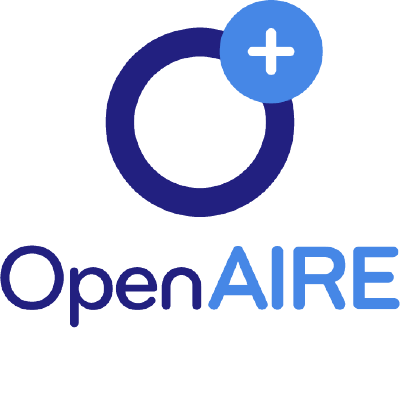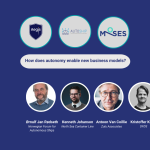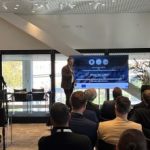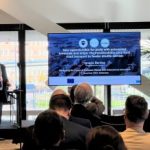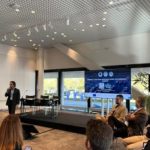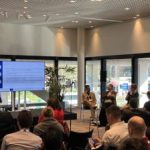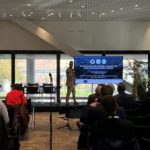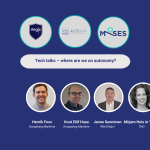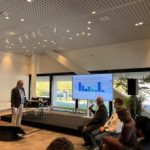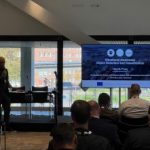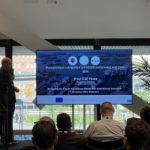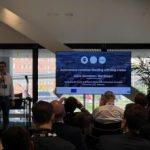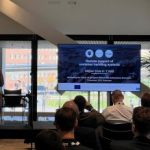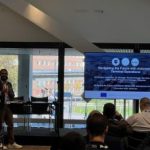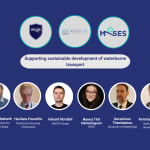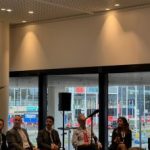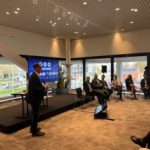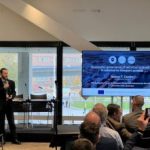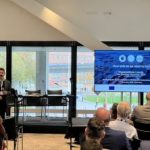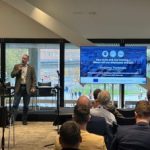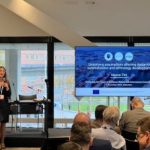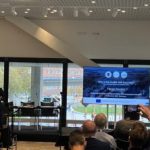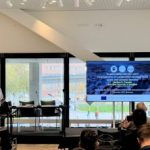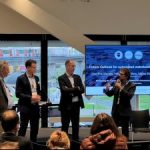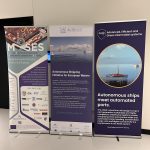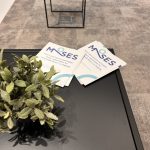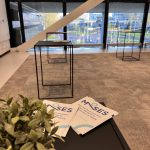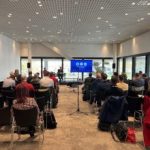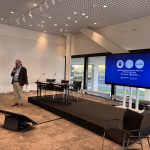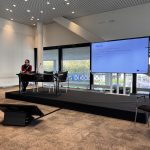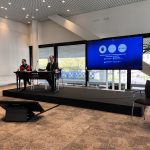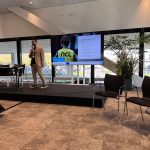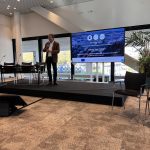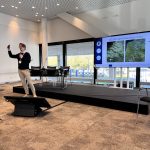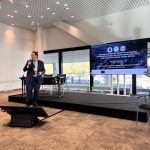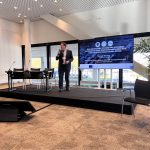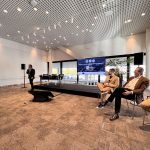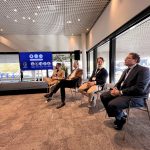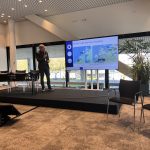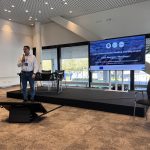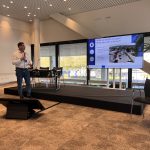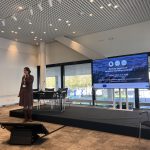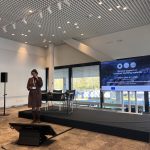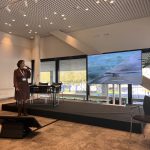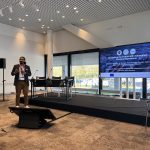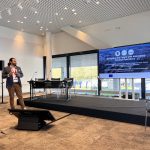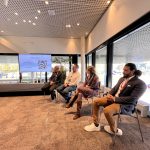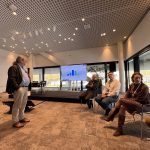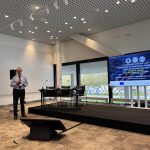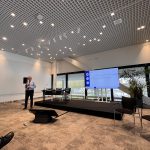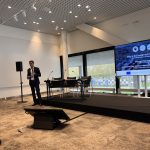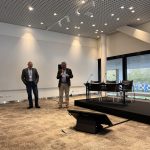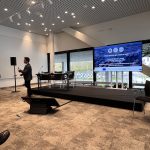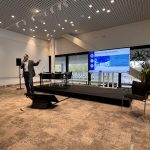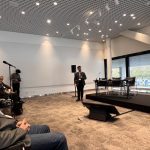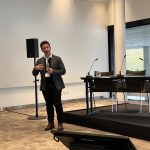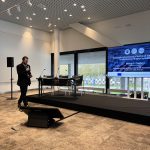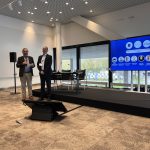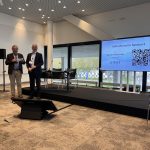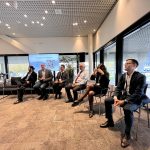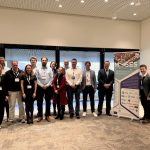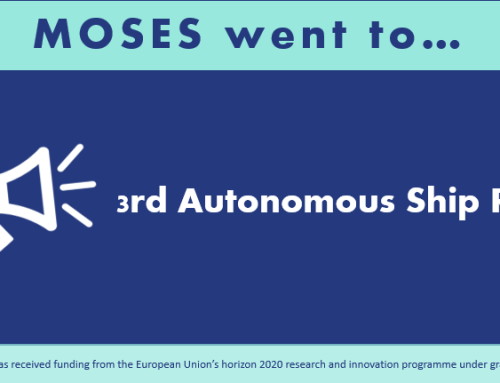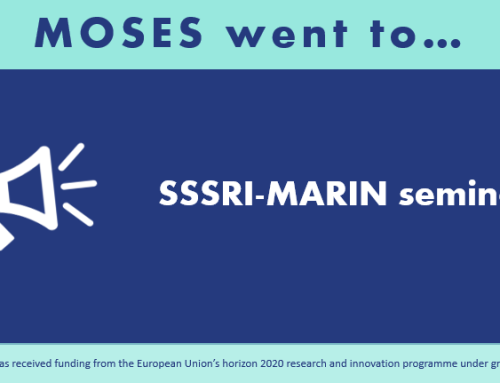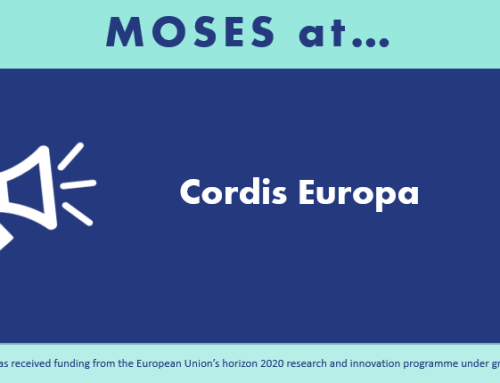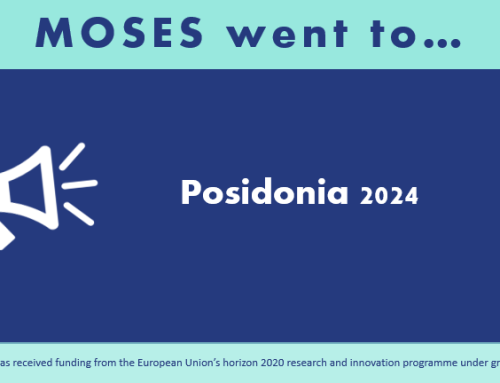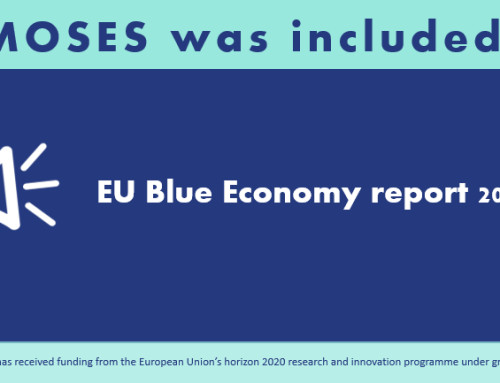
On November 7th, 2023, the maritime future came alive as the AEGIS, AUTOSHIP, and MOSES projects joined forces in Rotterdam for their joint event, ‘Navigating the Future of European Waters with Autonomous Innovation,’ right in the heart of Europort, the international maritime exhibition and meeting place for innovative technology and complex shipbuilding, organized in the world port city of Rotterdam.

The event delved deep into discussion on market, technology, and policy developments that are enabling autonomy to have a significant impact on the waterborne sector in the EU, fostering the needed modal shift toward more efficient and greener waterborne transport, and brought together the leading experts in the field to discuss the latest developments.
The day commenced with esteemed keynote speakers, Susanne Lanzersforfer (CINEA) and Alexander Hoffmann (DG MOVE), offering a comprehensive overview of CINEA – European Climate, Infrastructure, and Environment Executive Agency. Their insightful presentation covered the agency’s projects in waterborne automation, along with a detailed discussion on the priorities outlined by the European Commission.
Presentation is available here.
The event agenda is available here.
The event was divided in three sessions:
Session 1 – How does autonomy enable new business models?
Moderated by – from Norwegian Forum for Autonomous Ships – the session explored business cases, low-hanging fruit, and the unfulfilled potential.
Introduction – Why business cases matter
Ørnulf Jan Rødseth, Norwegian Forum for Autonomous Ships.
The hub-and-spoke redesign proposal with small, autonomous feeder shuttles.
Kenneth Johanson, North Sea Container Line.
Zero-emission logistics with uncrewed inland waterway barges and short sea vessels.
Antoon Van Coillie, Zulu Associates.
Autonomous ecosystems: A paradigm shift for maritime business models.
Kristoffer Kloch, DFDS.
New opportunities for ports with automated terminals and ships – Transferability cases.
Nacho Benítez Sánches, Port of Valencia.
Panel discussion with all speakers.
Moderated by Marco Molica Colella, Ciaotech PNO.
Session 2 – Tech talks – where are we on autonomy?
Our panelists from session 2 – moderated by Ørnulf Jan Rødseth from the Norwegian Forum for Autonomous Ships – discussed the current state of autonomy.
Introduction – The most important technical challenges.
Ørnulf Jan Rødseth, Norwegian Forum for Autonomous Ships.
Situation awareness – Object detection and classification.
Knut Eilif Husa, Kongsberg Maritime.
Autonomous navigation on inland waterways and open seas.
Knut Eilif Husa, Kongsberg Maritime.
Autonomous container handling with ship cranes.
Janne Suominen, Macgregor.
Remote support of robotic container handling systems.
Mirjam Huis in ‘t Veld, TNO.
Navigating the future with automated terminal operations.
Christopher Saavedra, Kalmar.
Panel discussion with all speakers.
Moderated by Ørnulf Jan Rødseth, Norwegian Forum for Autonomous Ships.
Session 3 – Supporting sustainable development of waterborne transport
The third panel session was moderated by Nikolaos P. Ventikos from National Technical University of Athens and explored sustainable ways forward for the #waterborne sector.
Introduction
Ørnulf Jan Rødseth, Norwegian Forum for Autonomous Ships
Is automation win-win-win? A perspective on sustainable developments goals and societal benefits.
Harilaos Psaraftis, Technical University of Denmark.
Why is the modal shift important? Zero-emission impact on external transport costs.
Håvard Nordahl, SINTEF Ocean.
Underlying assumptions affecting design in automatization and technology development.
Nanna Thit Hemmingsen, DFDS.
New skills and new training – Where will our employees end up?
Gerasimos Theotokatos, University of Strathclyde.
How safe do we need to be?
Konstantinos Louzis, National Technological University of Athens.
Successful governance of technical innovations in waterborne transport systems.
Nelson F. Coelho, Aalborg University.
Panel discussion with all speakers.
Moderated by Nikolaos Ventikos, National Technological University of Athens.
Bringing the curtain down on our event, project coordinators Marco Molica Colella, Odd Erik Mørkrid, and Nikolaos P. Ventikos fueled the excitement as they delved into the future outlook for autonomous waterborne transport, introducing also other European funded initiatives active in the same field, such as ReNew and SEAMLESS.
A press release for the conclusion of this event is also available here.
PHOTO GALLERY
